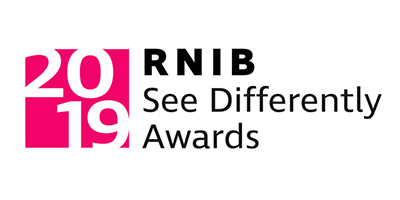Cash-strapped specialist education services failing 1 in 3 children with vision impairment

New report shows 44 per cent of local authorities (LAs) have cut or frozen funding for specialist education services supporting children and young people with vision impairment (VI) since 2017.
Thousands of children and young people with vision impairment are being failed by underfunded local authorities (LAs) across England according to research published today by the Royal National Institute of Blind People (RNIB).
The report, Left Out of Learning, reveals nearly half (44 per cent) of LAs have cut or frozen funding for specialist education services supporting 10,925 VI children over the last two years. A further 7,539 children and young people are accessing services that have failed to keep their budgets in line with inflation, meaning real term cuts to funding.
Despite a seven per cent rise in the number of children and young people requiring and accessing specialist support, more than a third (43 per cent) of LAs have reported a decrease in Qualified Teachers of Vision Impairment (QTVI), who are central to making mainstream education accessible for visually impaired children and young people.
The findings, which come from a Freedom of Information (FOI) request, also show that the number of LAs where QTVIs have a caseload of more than 100 students has soared to more than a quarter (28 per cent). Despite this squeeze in resource, a quarter (24 per cent) of LAs admitted to current or proposed reviews of their VI services.
Keith Valentine, Director of Development at RNIB, said:
“Every day in schools across England, children are expected to learn by reading books, watching demonstrations, interpreting graphs and completing written tasks. But these activities all rely heavily on the ability to see. Children and young people with vision impairment require specialist support to access the curriculum, navigate their school, take part in sports or games and learn on equal terms with sighted children. This vital support enables them to develop the essential skills they need to succeed, not just at school, but as adults with full lives.
“Our research has revealed a shocking lack of resource for local authorities to deliver this crucial provision. Despite an increasing number of children and young people requiring and accessing specialist support in the last few years, funding has been cut, QTVI roles have been lost and caseloads have increased – putting remaining services under enormous strain.
“With more than £14 billion being promised for primary and secondary education between now and 2023, we are urging the Government to act now and correct this funding gap to ensure every child with vision impairment is able to fulfil their potential.”
Cllr Judith Blake, Chair of the Local Government Association’s Children and Young People Board, said:
“This report provides further evidence of the immense pressures councils continue to face in supporting children who are blind or visually impaired as well as other pupils with special educational needs and disabilities.
“Councils know that visual impairments can make life incredibly difficult for those children who experience it, and are doing all they can to help them get the education they deserve.
“However councils are reaching the point where the money is simply not there to keep up with demand, pushing support for children with SEND to a tipping point.
“While it was good the Government announced extra money to support children and young people with SEND for next year, it must provide long-term funding certainty in the upcoming Spending Review and Budget.”
Along with their report, RNIB has launched an interactive map that displays where local authorities have frozen, cut or threatened changes to funding for VI services, along with an accessible list of the data. It demonstrates how structures, practices and budgets for specialist education services vary significantly across local authorities – a “postcode lottery” that RNIB is keen to see addressed.
The map also highlights where three in every four (76 per cent) local authorities in England have not kept funding in line with inflation. This means that an estimated 18,464 children, which represents nearly two thirds (61 per cent) of all children supported by VI services in England, are facing real-time cuts to their education.
About the research: RNIB runs an annual FOI survey of all 152 local authorities across England to map VI specialist services for children and young people. In 2019, RNIB received responses from 147 of the 152 local authorities in England, a response rate of 97%. This article summarises findings from the most recent survey in 2019 and makes comparisons with responses from the 2017 FOI request, which achieved a similar near 100% response rate. A total of 30,323 children and young people with vision impairment were reported by LAs across England as actively using support services.












Responses